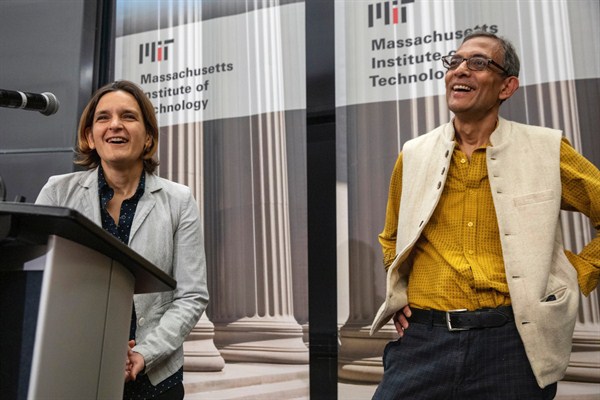The winners of the Nobel Prize in economics usually toil in relative obscurity, renowned among their academic peers while carrying out work whose benefit may be elusive to everyone else. By comparison, the work of other Nobel laureates usually seems much more concrete and easier to grasp, especially for the winners of the Nobel Peace Prize, whose impact is so clear-cut that they often become global superstars. Even in other scientific fields, the winners’ work can elicit popular nods of agreement with the Nobel Committee. Take this year’s winners of the chemistry prize, who helped develop rechargeable lithium-ion batteries, which people all over the world use in mobile phones.
And yet the work of this year’s economics laureates, Abhijit Banerjee and Esther Duflo of MIT and Michael Kremer of Harvard University, may have the most far-reaching impact of all on improving human lives—by successfully tackling poverty. In doing so, their research could ultimately affect global politics, one community at a time, with more force than most of the items we focus on day after day in World Politics Review. In awarding them the Nobel, the committee cited the three economists’ “experimental approach to alleviating global poverty.” Revolutionizing the field of economics, it turns out, can change the world.
Those of us who studied economics in an academic setting years ago are familiar with how much of the discipline was confined to developing theories in the mind of the economist, carrying out statistical analysis and then trying to elucidate why the theories didn’t unfold in the “real world,” as predicted. The field of development economics has tended to focus on macroeconomic tools, seeking ways to expand GDP, on the assumption that national economic growth would translate into improved standards of living for the entire population.

